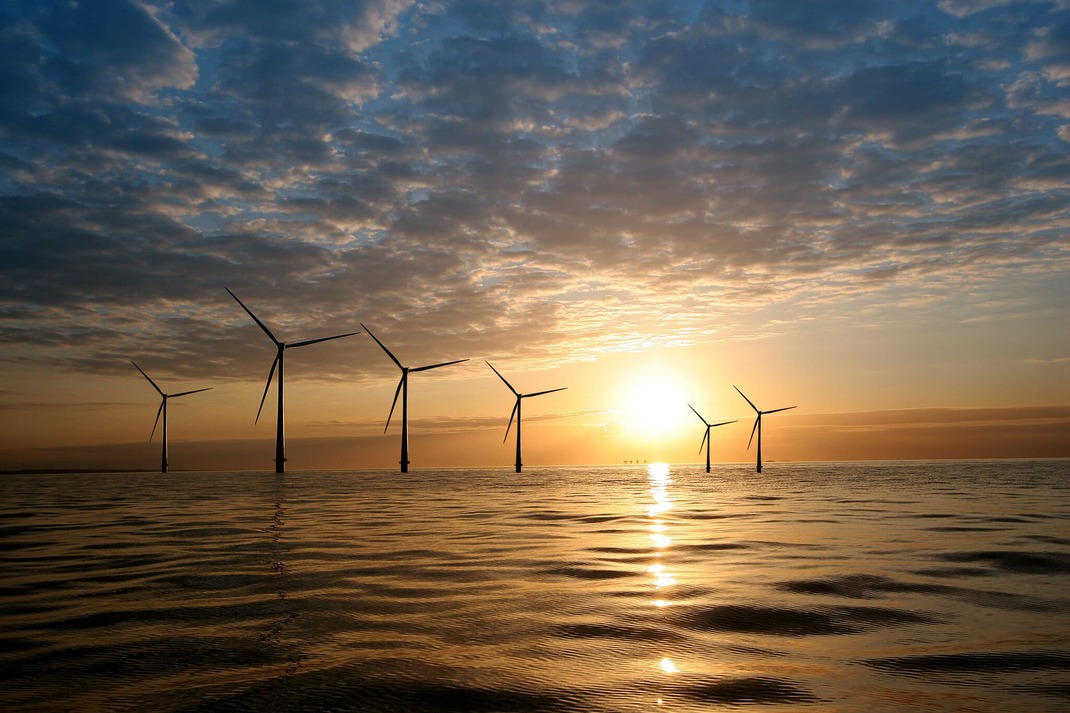Corporate PPAs: Achieving decarbonisation goals
Explore how Corporate PPAs (CPPAs) can help you achieve your long-term decarbonisation goals and provide ‘additionality’.

During the COVID-19 pandemic, a number of businesses accelerated their journey to net zero and one-fifth of the world’s largest organisations have now set net zero targets. VP of Sales, James Graham, shares his thoughts on why there’s been an acceleration in net zero goal-setting among large businesses, as well as how Corporate PPAs can help to achieve their long-term decarbonisation goals and provide ‘additionality’.
There has been growing support and a push from the UK Government to reach net zero targets since signing the Paris Agreement in 2015. The Energy and Climate Intelligence Unit (ECIU) and Oxford Net Zero have released a study showing that net zero pledges have been made by 21% of the world's top 2,000 public businesses, which account for over $14 trillion in sales.
This surge in commitments towards net zero has set a precedent for others to follow in their footsteps, acting as a springboard to encourage small and medium-sized businesses, public institutions and individuals to take action as well.
At SmartestEnergy, we’re committed to helping our customers on their journey to net zero. The first thing most businesses tackle is reducing their Scope 2 greenhouse gas (GHG) emissions - these are indirect emissions associated with the purchase of electricity. We believe that one of the best ways of achieving this is through a Corporate Power Purchase Agreement (CPPA).
1. What is a CPPA?
A CPPA enables large businesses to enter into a long-term contract with a renewable generator in order to buy electricity from an existing project or new build. We’re in a unique position to arrange that, working closely with both I&C Supply customers and independent renewable generators.
We have spent the last 20 years creating close relationships with customers and key stakeholders across both of these markets. This enables us to provide both Specific Renewable contracts and CPPAs, with both allowing a way for corporates to support an identified independent renewable generator – whether that be a project in close proximity, or a specific type of renewable generation.
To date, the UK seen a relatively slow adoption of CPPAs. However, we believe this is set to change.
We’ve already observed a global record of 23.7GW of clean energy purchased through CPPAs, growing by 18% from 2019. Here in the UK, we can see an increased interest in both generators and corporates wanting to find common ground – intending to establish long-term CPPAs which add to the grid’s renewable capacity or support existing projects as they look to extend their operational lifecycles through upgrades and additions.
2. Is a CPPA the right fit for your business?
There are a few things to consider when assessing whether a CPPA is best for your business.
Contracts and Credit History
The first is the ability to commit to a generation contract and pricing structure for over 7 years or more, compared to the two to three-year timeframe typically seen otherwise. This price commitment for an extended period can pose a challenge when gaining boardroom buy-in, so it’s important to know the commitment is there early on in a procurement process.
The next criteria to be aware of is credit history – to commit for a long period, good credit is key get getting the contract off the ground.
Additionality
Another consideration is whether ‘additionality’ is needed. Additionality can be simply explained as an agreement which enables 'additional' new renewable generation sites.
To truly create an additional asset, a business must take on the market risk associated with construction and long-term hedging. James Constable, Senior Manager at Baringa highlighted these factors when we welcomed him at our ‘Net Zero Week’ Festival.
Ask the right questions
However, the best place to start is considering the reasons for entering into a CPPA. This sounds like a basic first step, but it’s so important – knowing what is driving your decision to enter into this kind of long-term agreement helps to determine if a CPPA is right for your business and guides decisions that will ultimately feed into the selection of the right generation project and framework terms.
Good questions to ask include:
- Do you want to purchase renewable energy directly from a generator via a Corporate PPA or is it a high-quality renewable electricity product you want, whereby the supplier connects you to your preferred renewable generation source?
- Is the decision being guided by the business itself as part of your net zero strategy or are you influenced by consumer or stakeholder demands to see such a commitment in place? For example, is there a requirement to meet supply chain obligations?
- Are you looking for price certainty over a long-term period, understanding that energy prices can go up and down over time? Do you have the internal expertise or external support to manage a Corporate PPA?
- And finally, what is your requirement for renewable energy? Would you want your full supply volume met by a CPPA, or just a portion of it?
These are considerations that we work through with our customers to guide them on their journey to net zero and to consider if a CPPA is right for their business now or in the future.
What are the benefits of a CPPA?
Opting for a CPPA can give you the confidence you need to meet the requirements of Scope 2 GHG Reporting. Contracting with a renewable generator via a CPPA provides a clear and traceable source of power and REGOs over an extended period that can align well with long-term and impactful sustainability goals.
With a volatile wholesale market, businesses can benefit from price certainty, locking in fixed prices with mechanisms to manage the intermittent renewable generation capacity and forecast supply volumes.
When committing to net zero targets, businesses can also claim additionally when linked to a new build project, showing their contribution to wider climate change targets. CPPAs facilitate the decarbonisation of the wider grid and help to drive down its carbon intensity, while also providing brand differentiation and reputational benefits.
Opting for a CPPA is investing in renewables in a strategic way which shows commitment to net zero. It’s the future of renewable energy and can create a wider and lasting change for businesses, generators and the grid.

Achieve net zero through a Corporate PPA
Explore how you can partner with a renewable generator on a Corporate PPA to power your business with 100% renewable power.


